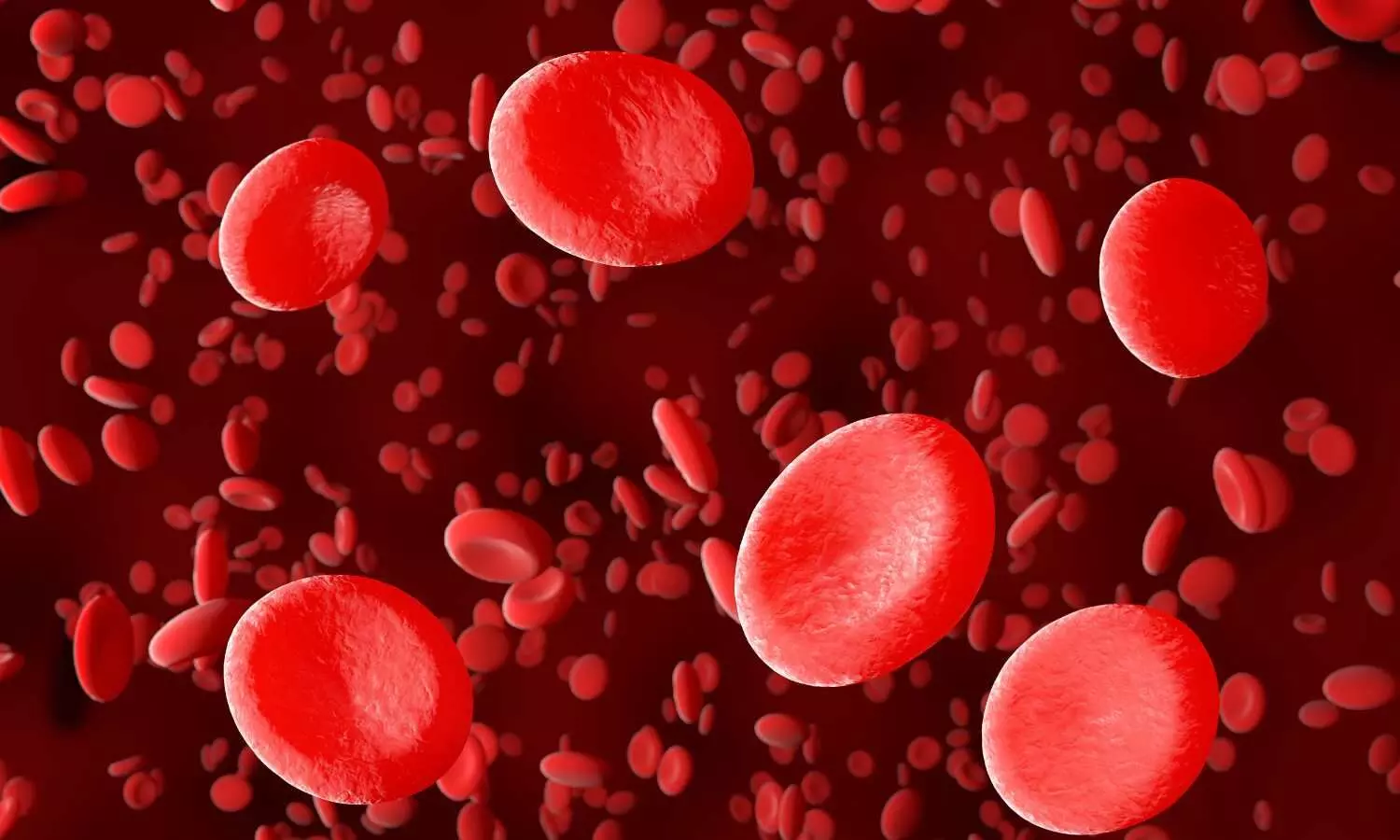Better medical record-keeping needed to fight antibiotic overuse, studies suggest
Powered by WPeMatico
Powered by WPeMatico
Powered by WPeMatico
Powered by WPeMatico
Powered by WPeMatico
Powered by WPeMatico

Hyderabad: Dr Reddy’s Labs has informed in a recent BSE filing, that the United States Food & Drug Administration (USFDA) has concluded a routine GMP inspection with two observations at the Company’s formulations manufacturing facilities (FTO-7 &
FTO-9) in Duvvada, Visakhapatnam.
The inspection was conducted from 8th May to 17th May,
2024.
“We have been issued a Form 483 with two observations, which we will address within
the stipulated timeline,” the Company stated in a BSE filing.
An FDA Form 483 is issued to firm management at the conclusion of an inspection when an investigator(s) has observed any conditions that in their judgment may constitute violations of the Food Drug and Cosmetic (FD&C) Act and related Acts.
Established in 1984, Dr Reddy’s Laboratories Ltd. is a global pharmaceutical company headquartered in Hyderabad, India. Dr Reddys offers a portfolio of products and services including APIs, generics, branded generics, biosimilars and OTC. Its major therapeutic areas of focus are gastrointestinal, cardiovascular, diabetology, oncology, pain management and dermatology. Dr Reddys major markets include – USA, India, Russia & CIS countries, China, Brazil and Europe.
Read also: Dr Reddy’s Labs expects strong product pipeline in North America for FY25
Powered by WPeMatico

Jaisalmer: In a shocking incident, a 70-year-old patient undergoing treatment at Barmer Medical College who went missing under mysterious circumstances on Wednesday was recently found dead by the police authorities on the hills near Sujeshwar Mahadev temple, approximately 2 kilometres from the hospital.
According to the police, the patient succumbed to high temperatures and dehydration after he left the hospital during his treatment and ventured to the hills.
As per a TOI news report, the patient, a resident of Magne ki Dhani, was brought to the hospital by his family due to respiratory problems on Tuesday. At night, the patient and his family stayed overnight in the hospital after having dinner.
However, moments later, the family found the patient not on his bed and was missing at around 4 am. They searched for him thoroughly but failed to find him. Following their failed attempt, the hospital administration was informed after which the police were alerted.
Upon receiving the information, the police initiated a search operation for the missing patient and received a piece of information about a body lying on the stairs of Sujeshwar temple.
After confirming the patient’s body, the police informed his family members and later kept his body at the mortuary.
A similar incident was reported by the Medical Dialogues Team in February last year when a patient undergoing treatment at the state-run medical college, Maharani Laxmibai Medical College in Jhansi, went missing from the hospital. Following this, Uttar Pradesh Deputy Chief Minister Brajesh Pathak issued an order to investigate the matter and sought a report from the college’s principal in three days.
Also read- Patient Under Treatment At Jhansi Medical College Goes Missing, Deputy CM Orders Probe
Powered by WPeMatico

New Delhi- Recently, the All India Institute of Medical Sciences (AIIMS) declared the result of Stages I and II of the Nursing Officer Recruitment Common Eligibility Test (NORCET-6) for the 2024 session. For candidates who have certain queries regarding NORCET- 6, AIIMS has released all the frequently asked questions (FAQs).
The online (CBT) for stage I for NORCET Preliminary was held on Sunday, April 14, 2024, and the Online (CBT) for stage II for NORCET Mains was held on Sunday, May 5th, 2024.
Below are the FAQs-
Q1 Who can apply for the online seat allocation process?
A Only candidates fulfilling all eligibility criteria (including the allowed relaxations), for all AIIMS, National Institute of Tuberculosis and Respiratory Diseases (NITRD), New Delhi, Chittaranjan National Cancer Institute (CNCI), Kolkata and All India Institute of Physical Medicine and Rehabilitation (AIIPMR), Mumbai respectively, and qualified in NORCET- 6 Stage-II will be provisionally allowed to participate in the online process of application and allocation of Institute.
Q2 How can a candidate apply for online Seat allocation?
A The qualified and eligible candidates will have to log in to their MyPage to apply for Online Allocation of Institute/Hospitals. The link for the portal to apply for the post of Nursing Officer in various AIIMS/ NITRD/ CNCI, Kolkata & AIIPMR, Mumbai will be activated only for qualified and eligible candidates in the MyPage.
Q3 Can a candidate apply for more than one Institute/Hospital?
A Yes, a candidate can apply to as many institutes as they wish to apply subject to their eligibility for the institutes/hospitals.
Q4 Can a candidate apply for all AIIMS and NITRD?
A Yes, a candidate can apply for all AIIMS, NITRD, CNCI & AIIPMR if fulfil the eligibility criteria for the same. The order of preference of allocation will be applicable as filled by the candidate in order of merit. Only one Institute will be allocated out of filled choices as applicable.
Q5 Can a candidate be allowed to change choices or order of preference or add new choices of AIIMS/Hospital where not applied in or later stage?
A NO. Choices and order of preference once filled at once cannot be changed at later stages. No correspondence in this regard will be entertained.
Q6 Can a Candidate be allocated a seat in both AIIMS and other Institutes/Hospitals?
A No, a Candidate will be allocated a seat at only one institute based on merit and preference filled for online seat allocation.
Q7 Whether a candidate be considered for seat allocation where he/she has not filled preference?
A No, Candidates will be considered for online seat allocation where they have filled choice/order of preference. No candidate will be allocated an institute where they have not filled choice/order of preference.
Q8 Is there any 2nd round for NORCET-6 (OPTION-2)?
A No, there is no 2nd round will be conducted. Now NORCET is conducted twice a year.
Q9 What is the time validity of category certificates provided by the candidates for NORCET-6?
A Validity of community certificates are as follows:
1. OBC(NCL): – OBC(NCL) Certificate should be issued between 01.04.2023 to 31.03.2024 w (Both dates inclusive).
2. EWS: – EWS Certificate should be issued between 01.04.2023 to 31.03.2024 (Both dates inclusive).
However, a candidate must possess all certificates as required on the day of accepting/reporting.
Q10 What will happen to candidates who have not uploaded any document in the portal?
A Candidature of all such candidates will be cancelled with the approval of the competent authority.
To view the FAQs, click the link below
Powered by WPeMatico

USA: In a significant development in the fight against COVID-19, the PARACOR-19 randomized clinical trial (RCT) results shed light on the potential cardiovascular benefits of Sacubitril/Valsartan among patients recovering from recent COVID-19 infection. This groundbreaking study, conducted by a team of medical experts from prestigious institutions, offers new insights into managing cardiovascular complications in individuals post-COVID-19.
The pilot RCT of patients who recovered from acute COVID-19 showed that sacubitril/valsartan did not improve cardiovascular biomarkers. Exploratory analyses suggested the potential benefits of sacubitril/valsartan on cardiac wall stress and collagen turnover as measured by NT-proBNP and C-terminal telopeptide of collagen type I (CITP). Sacubitril/valsartan was well tolerated.
The findings of the PARACOR-19, a single-center, double-blind RCT, were published online in the European Journal of Heart Failure on May 11, 2024.
The PARACOR-19 was designed by Stephen J. Greene, Duke Clinical Research Institute, Durham, NC, USA, and colleagues to examine the effects of sacubitril/valsartan on markers of cardiac injury, function, inflammation, and structure among patients who have recovered from acute coronavirus disease 2019 (COVID-19) infection.
The trial included patients with cardiovascular risk factors and a history of COVID-19 infection 4–16 weeks before enrolment. They were randomized to sacubitril/valsartan (titrated to the maximum dose of 97/103 mg twice daily) versus a matching placebo.
Co-primary endpoints were a change in high-sensitivity cardiac troponin T (hs-cTnT) and soluble ST2 (sST2) from baseline to 12 weeks. Exploratory endpoints included change in additional circulating biomarkers from baseline to 12 weeks.
Overall, 42 patients were randomized between 2021 and 2023 (n = 20 sacubitril/valsartan, n = 22 placebo). The median time from COVID-19 diagnosis to enrolment was 67 days. The median age was 67 years, 48% were females.
The study revealed the following findings:
In the pilot, RCT of patients who recovered from acute COVID-19, sacubitril/valsartan failed to lower hs-cTnT or sST2 compared with a placebo. Exploratory analyses indicate its potential benefits on cardiac wall stress and collagen turnover as measured by CITP and NT-proBNP. Sacubitril/valsartan was well tolerated.
Reference:
Greene, S. J., Chambers, R., Lerman, J. B., Harrington, J., Wendell, D. C., Kim, H. W., Green, C. L., Butler, J., & Felker, G. M. Sacubitril/valsartan and cardiovascular biomarkers among patients with recent COVID-19 infection: The PARACOR-19 randomized clinical trial. European Journal of Heart Failure. https://doi.org/10.1002/ejhf.3199
Powered by WPeMatico

People who use metformin are less likely to develop a myeloproliferative neoplasm (MPN) over time, indicating that the treatment may help prevent the development of certain types of cancers, according to a study published in Blood Advances.
Metformin is a therapy used to treat high blood sugar in people with type 2 diabetes that increases the effect of insulin, reduces how much glucose is released from the liver and helps the body absorb glucose. A meta-analysis of previous studies connected the therapy with a reduction in the risk of gastrointestinal, breast, and urologic cancers, while a retrospective study of U.S. veterans found that metformin users have a reduced risk for solid and hematological cancers.
“Our team was interested in understanding what other effects we see with commonly prescribed treatments like metformin,” said Anne Stidsholt Roug, MD, PhD, chief physician at Aarhus University Hospital and clinical associate professor at Aalborg University Hospital in Denmark. “The anti-inflammatory effect of metformin interested us, as MPNs are very inflammatory diseases. This is the first study to investigate the association between metformin use and risk of MPN.”
MPNs are a group of diseases that affect how bone marrow produces blood cells, resulting in an overproduction of red blood cells, white blood cells, or platelets that can lead to bleeding problems, a greater risk of stroke or heart attack, and organ damage.
The researchers compared metformin use among patients diagnosed with MPNs and a matched population from the Danish general population between 2010 and 2018. Of the 3,816 MPN cases identified from the sample, a total of 268 (7.0%) individuals with MPN had taken metformin as compared to 8.2% (1,573 out of 19,080) of the control group of people who had taken metformin but were not diagnosed with MPN. Just 1.1% of MPN cases had taken metformin for more than five years, as compared to 2.0% of controls. The protective effect of metformin was seen in all subtypes of MPN when adjusting for potential confounders.
“We were surprised by the magnitude of the association we saw in the data,” said Daniel Tuyet Kristensen, MD, PhD student, at Aalborg University Hospital and lead author of the study. “We saw the strongest effect in people who had taken metformin for more than five years as compared to those who had taken the treatment for less than a year.” Dr. Kristensen added that this makes clinical sense, as MPNs are diseases that develop over a long period of time, like other types of cancer.
The researchers noted that while the protective effect of long-term metformin use was seen in all subtypes of MPN, the study was limited by its registry-based retrospective design. Further, they could not account for lifestyle factors that can affect cancer risk, such as smoking, obesity, and dietary habits.
Dr. Roug noted that while the study team were unable to assess exactly why metformin seems to protect against the development of MPN, they hope additional research will be conducted to better understand why this may be. Moving forward, the researchers aim to identify any similar trends with myelodysplastic syndromes and acute myeloid leukemia in population-level data for future study.
Reference:
Daniel Tuyet Kristensen, Andreas Kiesbye Øvlisen, Lasse Hjort Jakobsen, Marianne Tang Severinsen, Louise Hur Hannig, Jørn Starklint, Morten Hagemann Hilsøe, Anders Pommer Vallentin, Mette Brabrand, Hans Carl Hasselbalch, Tarec Christoffer El Galaly, Anne Stidsholt Roug. Metformin use and risk of myeloproliferative neoplasms – a Danish population-based case-control study. Blood Advances, 2024; DOI: 10.1182/bloodadvances.2023012266.
Powered by WPeMatico
